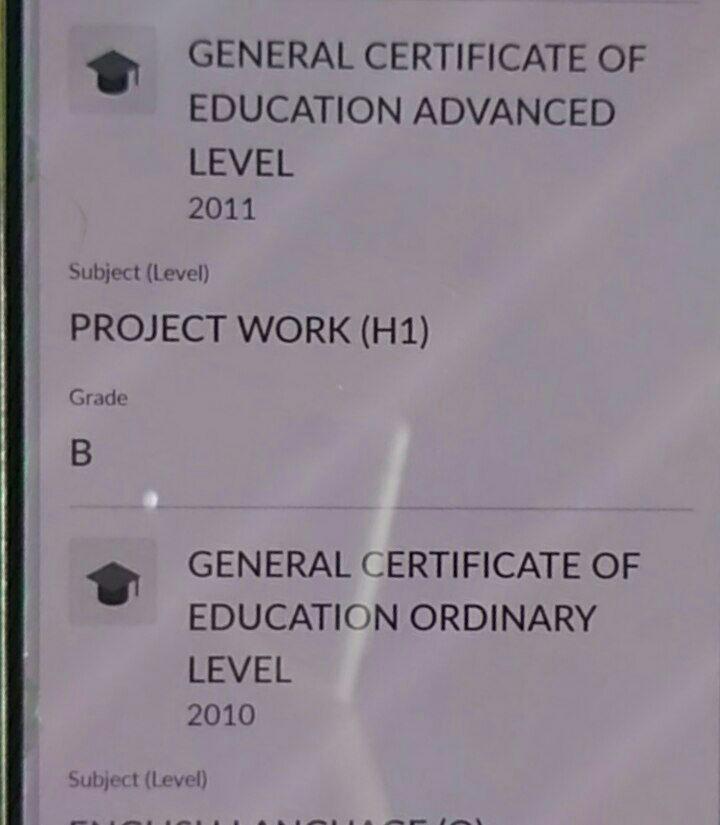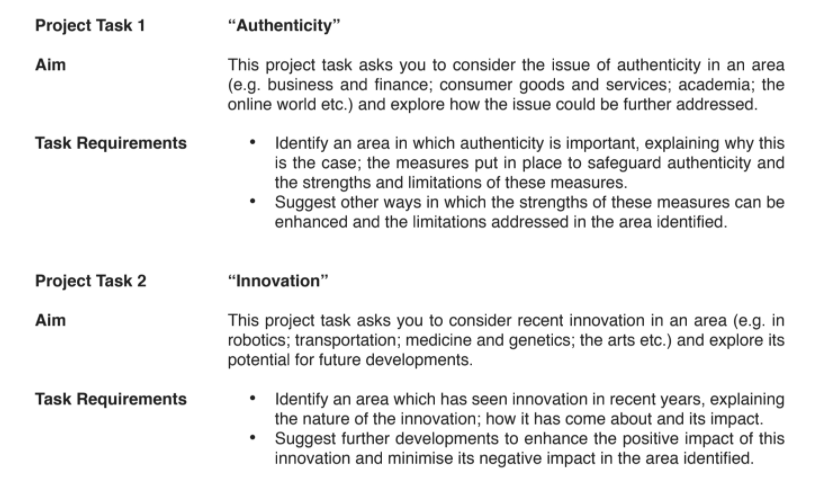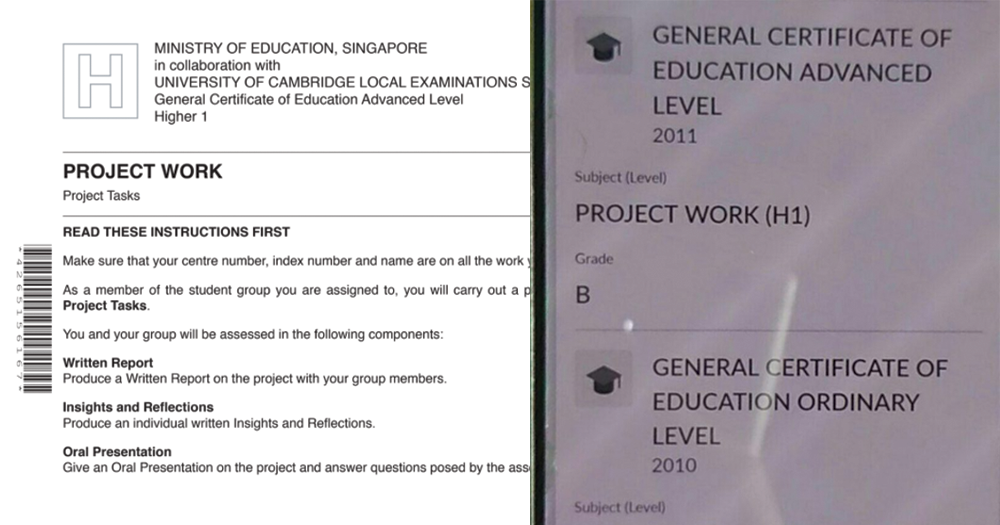Ah, adult life.
If you were just beginning to forget the dread associated with studying (the gnawing insecurity that you will bring shame to your entire family because you didn’t get good grades), you can be assured that the past will always come back to haunt you one way or the other.
Imagining fiddling around with your digital profile on SingPass, only to be reminded of something that happened nearly ten years ago.
Something you never thought much about until it hit you in the face like a wall of assessment books.
Something like this.
 Cue bad memories from 2011 that I do not want to relive, thank you very much.
Cue bad memories from 2011 that I do not want to relive, thank you very much.
I have a knack for remembering details but even I’d nearly forgotten about the existence of Project Work (PW) as an A-level subject.
If somebody asked, “Hey remember that time we did that project…?” I would probably think of some assignment in school or something we had to organise as part of my CCA. Not A-level PW.
Now, thanks to SingPass, I can now cue a spiral of bad memories associated with PW -- a subject that, in my opinion, made absolutely no sense.
What the heck is PW?
For the uninitiated, PW is essentially a bunch of 17-year-olds being forced to work together on an A-level subject.
They start out with a topic, and identify issue(s) centred around it. They then think of solutions or suggestions to address the issues, and substantiate their entire thought process.
If you haven’t had the good fortune of taking PW as a subject in JC, the 2020 syllabus basically describes it as:
“A learning experience which aims to provide candidates with the opportunity to synthesise knowledge from various areas of learning, and critically and creatively apply it to real life situations. This process, which enhances candidates’ knowledge, and enables them to acquire skills like collaboration, communication and independent learning, prepares them for lifelong learning and the challenges ahead.”
"Apply it to real-life situations" and prepare people for "challenges ahead"?
I mean, that’s a lot of buzz words that sound great on paper. But when it comes to real life situations, I'm sure most of us have realised that it's nothing like the PW experience.
Oh, and did I mention that in the world of PW, everything happens in a series of word submissions and presentations? Because that’s always how problems should be solved, apparently.
Is this the real life or is this just PW?
As this ST forum letter astutely points out, project work is a “paper exercise without real-life implementation”.
For illustrative purposes, check out the 2019 question paper for PW:

There are some big words, and possibly even noble concepts, thrown about like "authenticity", "innovation", "safeguard" and "enhancing positive impact".
But the truth is, in the real world, the starting point for problem solving is almost-always never this broad nor philosophical. Who seriously considers how to deal with their problems in terms of keywords? Not me.
Very often, we’re just figuring things out on the fly, in response to curveballs that life throws at us, only to have yet another challenge come our way because, surprise surprise, things have changed once again.
Unlike PW, I have found the process of ideation and resolution rarely unfolds linearly, nor does it occur in a neat series of reports and presentations.
The end goal of a student is never actually to really solve the problem (as would be in the real world). The ideal end-point for a student is a good grade.
Analytical thinking? Sure, if you consider haphazardly trying to source for solutions, and then looking for research to support our conclusions (yes, this was what my group did).
Team work? I’m fairly certain that you don’t need an A-level subject to teach you that some people are slackers and won’t pull their weight (I hope my PW mates aren’t reading this, but if you are: some of you guys were real slackers).
So, what’s the point, you ask? To open your SingPass app 10 years later and be reminded of that one time you did a report you did with three other students? I'm not too sure either.
In defense of PW
But ok, maybe I'm being harsh, there are indeed some merits to this whole endeavour.
It makes people follow through with things even if they don’t like what they’re doing (it’s either you suck it up or you fail the subject, and everyone knows that in Singapore, there’s nothing worse than failing).
It also forces people to work with others they don’t like to get things done (good practice for the workforce, some might argue).
In fact, for those of you who like to use academic studies to substantiate your points (PW-style), according to this 2011 academic paper, Singaporean students were found to recognise the value of doing project work in developing “metacognition skills and other lifeskills”.
Life is one big PW
And I‘m not disagreeing. The rationale for having PW, to promote problem-solving skills and collaboration between people, is fair.
But my point is, I don't think you need an entire graded A-level subject, with a structured syllabus and course requirements, to learn this.
Wouldn't life in general already expose you to that?
In fact, thinking of PW as something that helps us navigate real life is, in my opinion, a fundamentally flawed way of thinking about things.
Does PW help us in real life? Or is it the other way around, with the experience of and exposure to real life helping us tackle project work better?
Life is already one giant PW anyway. A series of frustrations, slackers and all.
We deliver more stories to you on LinkedIn
Top photo screenshots from question paper, photo by Mothership.
If you like what you read, follow us on Facebook, Instagram, Twitter and Telegram to get the latest updates.
